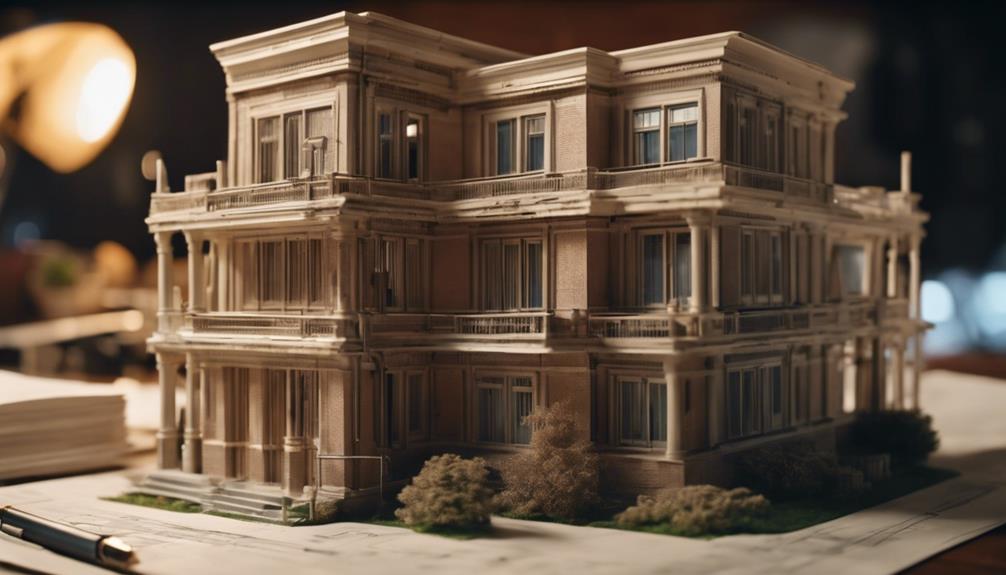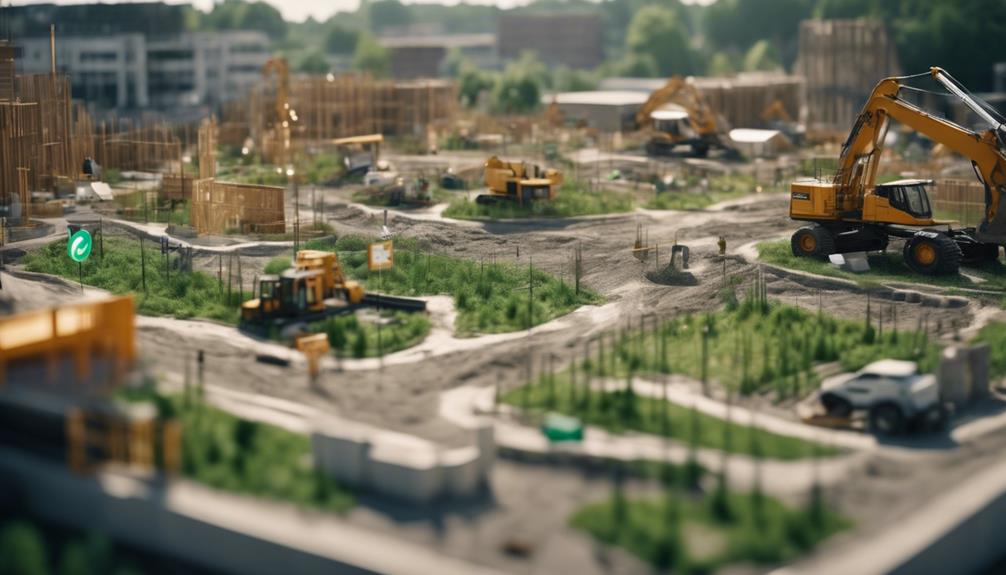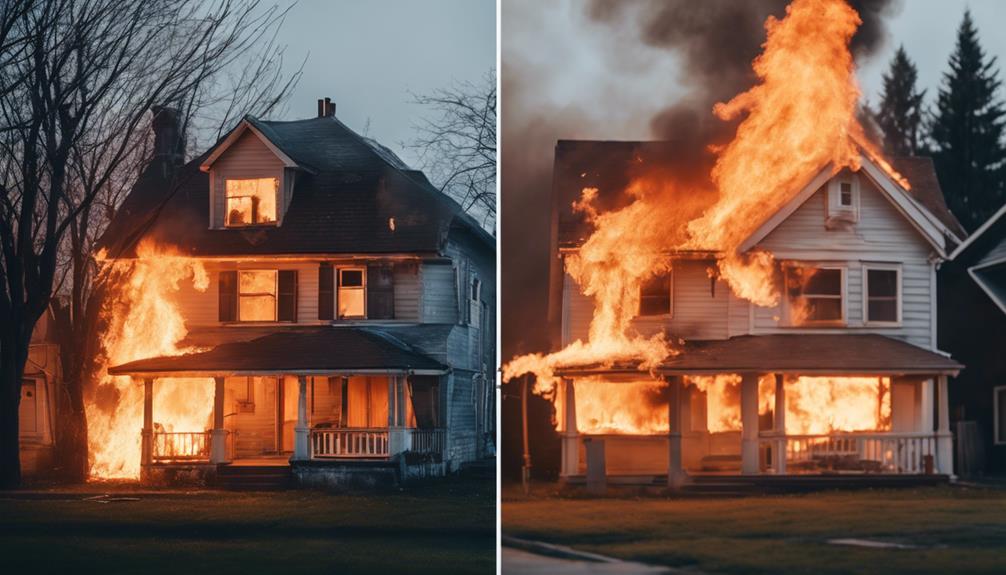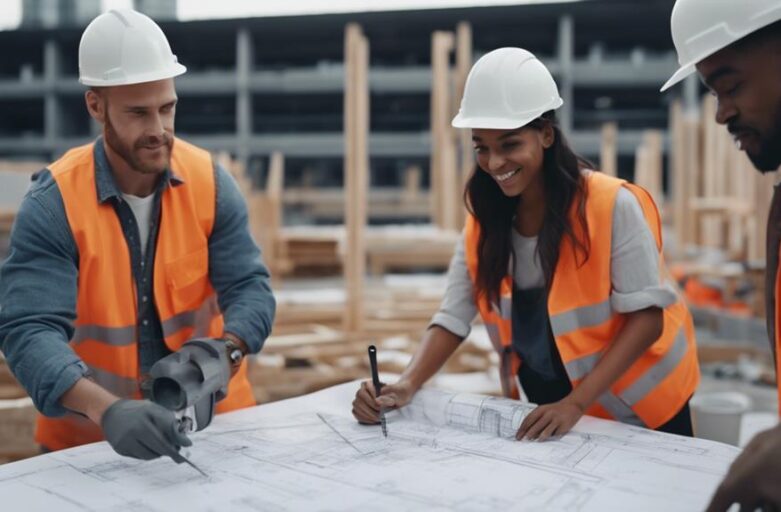Local building rules are super important. They help ensure that the places we live, work, and play in are safe. These rules guide builders on how to construct buildings so they can withstand things like storms and daily use. They're updated often to make our spaces even safer.
These rules also help save money by avoiding expensive problems during construction. When you start to understand how these rules help keep our buildings safe, it's really interesting.
Key Takeaways
- Local building rules are super important for keeping us safe. They make sure buildings of all shapes and sizes are sturdy and won't fall down.
- These rules aren't just made up, they come from experts working together. They're also updated often to ensure they're the best they can be.
- These rules also help keep people safe who are building the houses and buildings. This means fewer accidents happen on construction sites.
- Following these rules means buildings are more stable and everyone is safer. They can even decrease the chance of accidents happening by more than half!
- Finally, these rules make sure things like fire alarms, gas, and water pipes are safe and work properly. This helps prevent leaks and makes sure our water is clean and safe to use.
Understanding the Concept of Building Codes
Building codes are like the superhero of the construction world. They're not just boring rules that builders have to follow. They're important guidelines that make sure our homes, schools, and other buildings are safe, sturdy, and can stand the test of time.
Think of building codes as a protective shield. They help guard against dangers and problems that could happen during construction. These rules make sure every project, whether it's a tiny house or a massive skyscraper, is built with our safety in mind.
Now, there's something called Local Building Codes. These are special rules that are made just for a certain area or community. These codes consider things like the local weather, environment, and any natural disasters that might happen. So, they're a pretty big deal when it comes to keeping our communities safe.
You can think of these codes as the building's DNA. They help shape the building, guide how well it performs, and how strong it can be. Without these codes, our buildings wouldn't just lack rules to follow, they wouldn't be as safe. So, it's safe to say that building codes are super important in the world of construction.
Creation and Updates of Building Standards
Let's dive into the cool process of making and changing building rules. These rules make sure our buildings are safe, long-lasting, and use energy wisely. This process involves teamwork, input from everyone, and uses solid science. It's a way for everyone to work together and take care of each other.
First, a new rule starts with a group of people agreeing on what the rule should be. This group has different people, like the guidelines from the American National Standards Institute (ANSI) suggest. This makes sure your building designs and needs are considered.
You can also have a say in these rules. You can give your thoughts on any new rule ideas, so everyone gets to have their say.
Here's a simple chart to show you how it works:
| Stage | What Happens | Who's In Charge |
|---|---|---|
| Making the Rule | Making the first rule | Rule-making team |
| Your Thoughts | Hearing what you think | Everyone |
| Changing the Rule | Making changes to the rule | Expert volunteers |
| Science Stuff | Talking about updates | NIST science experts |
| Final Call | Saying yes to rule changes | ICC government members |
With these constant changes, our buildings stay safe and work well. You're part of a team that cares about these rules, making sure we all live and work in safe, well-working places.
Transition From Model Codes to Law

Once everyone has helped shape model codes, it's time to make them real, turning them into laws that can be enforced. This is really important for keeping your local community safe and ready for anything. These codes become a shield for your community against possible dangers once local and state lawmakers decide to make them law.
These model codes for building are like a rulebook that's followed all over your state, making sure that buildings everywhere are safe. But these aren't hard and fast rules. Lawmakers can make changes to these codes to make them stronger and better suited to handle specific local dangers and needs. It's a careful balancing act of keeping important safety rules while also considering what each local area needs.
This is where you and your neighbors come in. Local lawmakers make these codes into laws, but everyone in the community plays a part in making sure they're followed. Enforcing these codes isn't just about local building departments ticking off a checklist. It's about everyone in the community working together to make sure everyone is safe and cared for.
Role of Regulations in Construction Safety
Think about going to a construction site and feeling completely safe. This is all thanks to the building rules we've in place.
These rules aren't there to make things difficult. Instead, they help make sure the work environment is safe. They make sure buildings are strong and safe, stop accidents from happening, and even save lives.
Preventing Construction Accidents
In construction, following local building rules is like wearing a safety helmet. They help avoid accidents and keep everyone safe from any risks. The local building office lays down strong safety rules. These include ways to avoid fires and falls, which can help lessen construction mishaps.
Think of these rules as your guidebook for keeping everyone healthy and safe. They insist on clear danger signs and correct use of safety gear, creating a safer place for construction workers. When you follow these rules, you're not just obeying the law, but also making your community safer.
Ensuring Structural Integrity
Keeping a construction site safe isn't just about the workers. It's also about the buildings. Every state has rules about how to design and build them. These rules are like a recipe that gets updated every three years to keep buildings safe and strong.
Following the first 'recipe' or code isn't just about following the rules. It's about keeping the people who'll live in the buildings safe. It's also about protecting the buildings themselves, and keeping your good name as a builder. The rules tell you what materials to use and how to build so that bad things, like buildings falling down or catching fire, are less likely to happen.
These rules also help you stay away from having to fix problems with the building's structure, which can be expensive. They make your buildings more durable and stable. So, think of these rules as your guidebook to building strong, lasting structures.
Impact of Compliance on Project Development

Following your local building rules is more than just doing what you're told – it's a smart move that helps your building project go smoothly. These rules, set by the local government, help shape how we build things. They can help avoid delays in your project. They also make sure your building is safe and prevent you from having to fix things later.
If you don't follow these rules, you could get in big trouble. You might have to pay a lot of money, or your project could even get shut down. But it's not just about avoiding problems. By following the rules, you're showing respect to the people in charge, and making the process of getting your project approved a lot easier.
Also, if your building project meets all the safety rules, people will trust it more. They'll know it's safe to be inside, and you won't have to worry about being blamed if something goes wrong. So remember, every time you follow the local building rules, you're doing more than just obeying the law – you're making a smart choice for your project, and helping to keep everyone safe.
Building Resilience Through Code Compliance
Imagine your house staying sturdy even in a big storm, keeping everyone and everything inside safe. That's what local building rules can do. They make your house stronger, keep people safe, and save money in the long run.
Enhancing Structural Integrity
When we follow the rules to build a house or a building, it helps to make sure it's strong and safe. These rules, called building codes, protect us from bad stuff like earthquakes or hurricanes. They help make sure the building won't break easily and keep everyone safe.
So, when we use these rules, we're making a strong and safe building that can protect us from disasters. This isn't just about following rules, but about helping to keep everyone safe from danger. By making our buildings stronger, we also show that we care about our community. It's these little rules that can make a big difference.
Promoting Public Safety
Building codes are rules for building structures like houses and apartments. They're like a safety manual, making sure everything is built right and safe. Imagine them as a superhero protecting us from danger. They look after things like fire safety, wiring, and pipes. If we follow these rules, we can cut down damage and accidents by a big 60%. This just shows how important they're for everyone's safety.
Plus, they also protect your money. By sticking to these rules, we can lower our insurance claims for damage by a good 30%. Every time we follow these codes, it's like we're building a suit of armor for our communities to keep them safe.
Ensuring Economical Sustainability
Economical sustainability is like a game of saving money that everyone plays in their town or city. One of the main rules is to follow local building codes. These codes are a set of rules that make sure our buildings are safe and sturdy.
Imagine your town as a large team. The government, building inspectors, and you're all players. By following these rules, we reduce the chances of accidents, thus making our town a safer and more prosperous place.
Think of building codes like a shield. They protect us from heavy utility bills and high insurance costs. They also keep us safe from natural disasters like storms, earthquakes, and floods. By following these rules, we can bounce back faster after such events.
Residential and Non-Residential Building Codes
If you're planning to build a house or a big business building, knowing about residential and non-residential building codes is really important. These rules help make sure that your building is safe and will last a long time.
These building codes are like a guide for how to build better. The rules in your area might tell you what kind of materials to use, how to save energy, and even what you need to do if you want a swimming pool. For houses, these rules cover everything from air conditioning to toilets. This makes sure your house is safe and good for the environment.
When you're building something for a business, there are even more rules. These rules set the standards for business buildings and give directions on how to save energy. They even have rules for special types of buildings like modular ones.
In short, these building codes are a roadmap to a successful building project. They help you build something that's safe, saves energy, and will last a long time. Following these rules isn't just required by law, but it also means your project is done the right way, which will make you feel good about being part of your community.
Importance of Fire, Gas, and Plumbing Codes

Let's take a look at the world of fire, gas, and plumbing codes. These codes are like invisible superheroes, always keeping us safe at home or at school. The International Code Council (ICC), a group of experts, makes these rules based on science and engineering to ensure everyone's safety.
There's a group called the National Fire Protection Association (NFPA) that makes rules about fire. These rules help design buildings to keep fires from happening, and they also tell us what to do if a fire does happen. These rules are so important that insurance companies might lower their charges if they're strictly followed.
Next, we've gas codes. These rules make sure that gas systems are installed and maintained safely. This is to avoid dangerous leaks that could cause serious accidents.
Then, there are the plumbing codes. These rules are set by the Building Science community. They make sure the water we drink and bathe in is clean and safe by preventing leaks and keeping dirty stuff out.
In short, these codes are like silent superheroes. They're always working in the background to keep us safe and healthy.
Conclusion
Local building codes and rules might seem like a hassle, but they're incredibly important. They make sure our homes, schools, and buildings are safe and sturdy.
Ever thought about why we've rules for things like fire safety, gas systems, and plumbing? Well, these rules are like superheroes, they protect us from danger. They help our buildings, big or small, to stand tall and keep us safe.
So, let's give a big cheer for these important rules that help us feel safe wherever we are.


